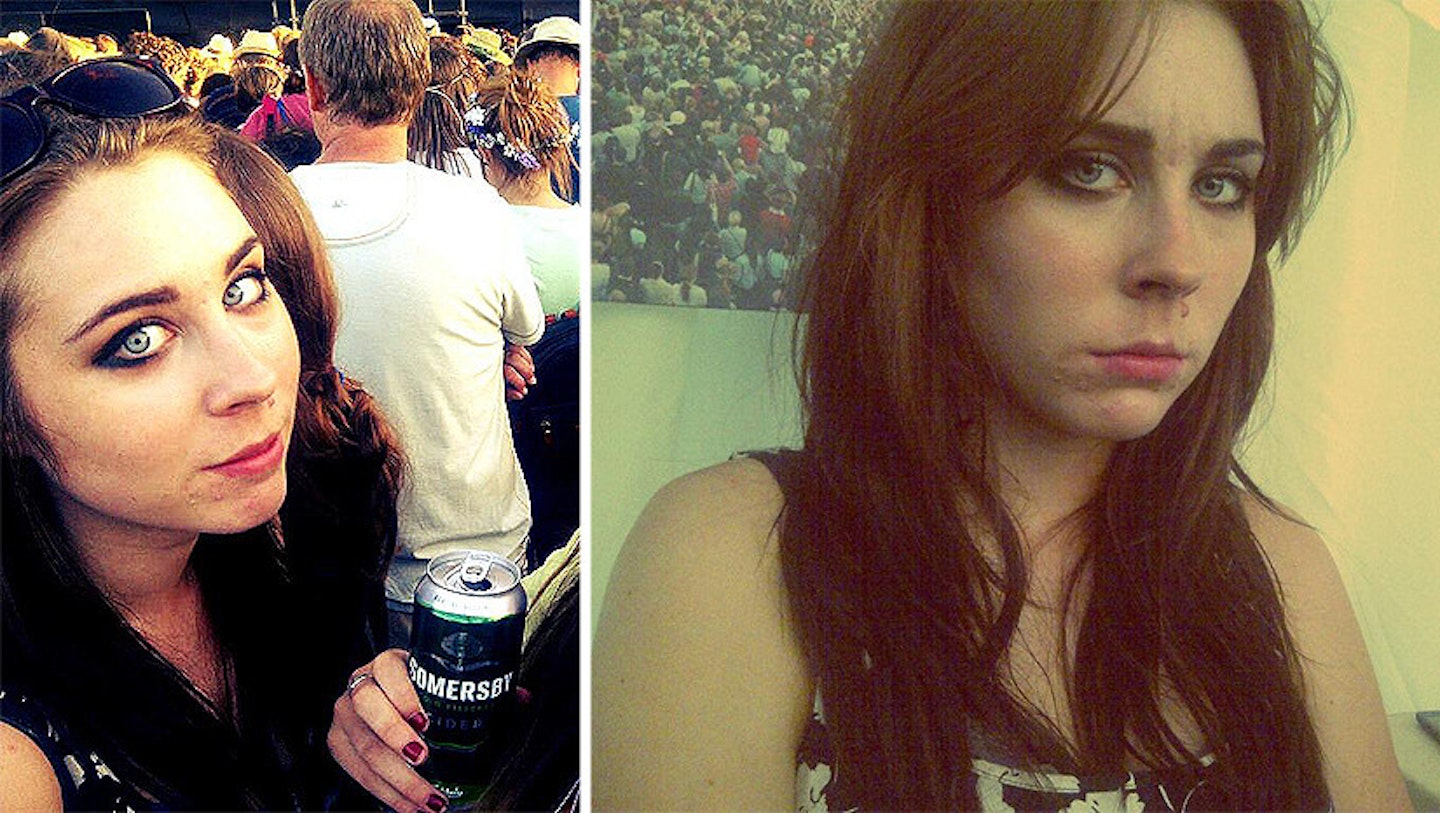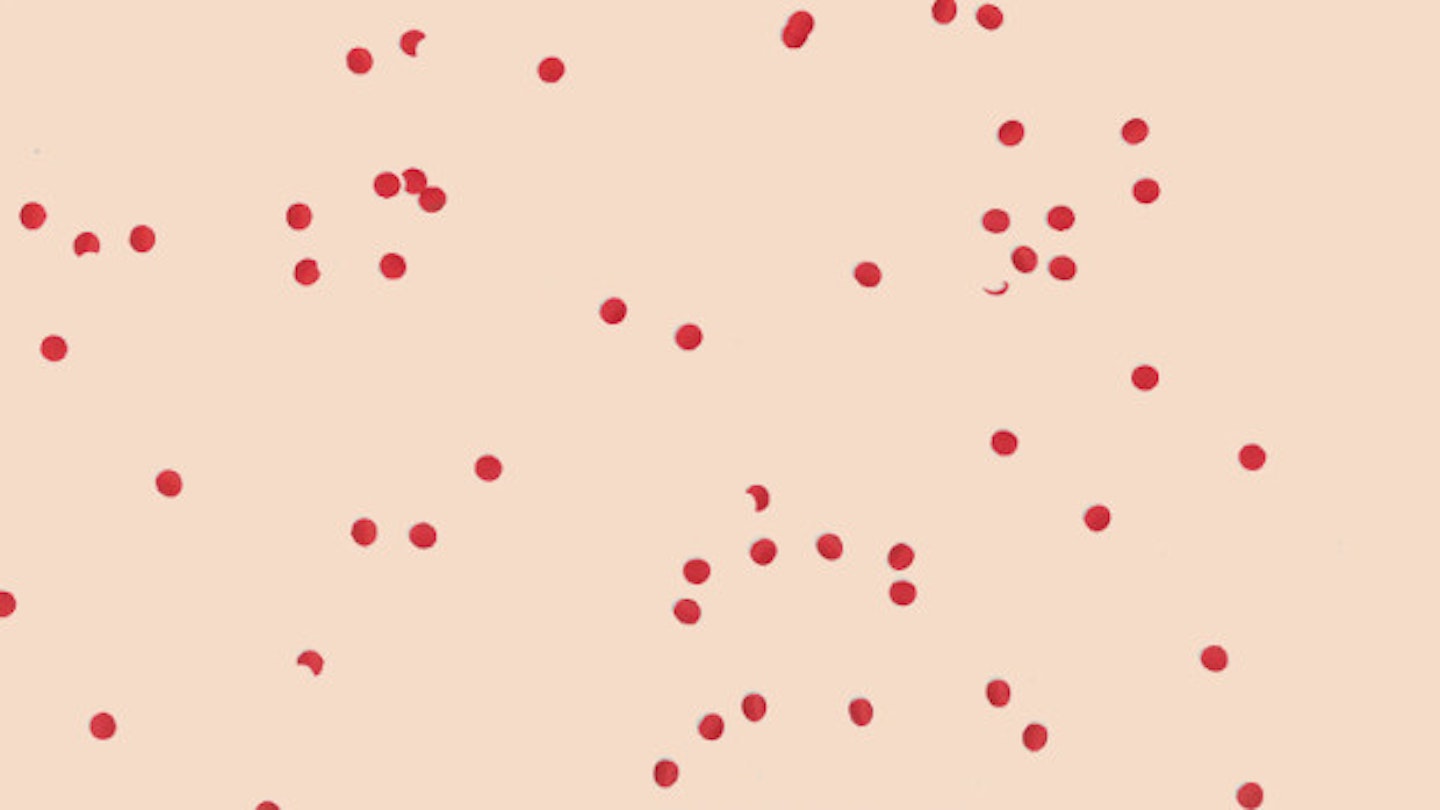I had amazing skin when I was 13. Unfortunately, I also had orange skin from the thick, gloop I got for 50p down the market, white eyeliner on my eyelids and a ponytail so slicked back it gave me the appearance of being constantly in a windtunnel. I just didn't appreciate the fact that, underneath all the chavvy gunk, I was flawless until I turned 23 and found myself on the receiving end of what I came to affectionately term 'my spotbeard'.
Except it wasn't really affectionate, because I was uncomfortable standing too close to people, and the prospect of nipping to the Food and Wine shop downstairs without makeup on was unthinkable. I'd wake up early to put concealer on before my boyfriend woke up. I was That Girl. When I think of summer 2013, I think of being boiling hot, sweaty, covered in concealor and crying the morning of Latitude because my entire chin was angry, red and sort of weeping.
'Adult acne is recognised as an increasing problem. Whether this is due to increased awareness and therefore acne sufferers seek treatments in search of clear skin in our cosmetic world or whether this is truly a real increase in prevalence is difficult to be sure,' Dr. Alison Layton from the British Association of Dermatologists tells* The Debrief* when I ring for reassurance that this problem isn't just mine alone. 'There appear to be two clinical subtypes, acne that has persisted beyond teenage years as a continuum and acne that appears for the first time in adult years. The defined age for adult acne is said to be > 25 years of age but this is not based on any solid evidence.'
What causes acne?
More common in women than men, acne is more likely to impact your mood if you're an adult, making us feel depressed; while teens also get down if they look spotty, there's some comfort in the notion that it's probably just a phase. You get the feeling that you'll come out of the other end of the puberty tunnel like a fully grown woman and acne will be relegated to the Teenage Things box along with drinking straight Smirnoff shots and snogging boys with phone numbers drawn all over their topless torsos in markerpen.
READ MORE: Here Are The Best Fake Tans To Ease Yourself Into Sad Skin Into Autumn
I got rid of my spots when I turned 26 after months of doctors telling me it was due to stress, hormones, my diet, alcohol, smoking and my IBS (hello boys). After sleeping in sudocrem every night and bars purely for their low lighting, they suddenly disappeared and the horrible thing is: I don't know why. I don't know whether it was the Dianette (a contraceptive pill that a) clears up acne and b) causes deep vein thrombosis if you're on it for too long) or the new exfoliator I'd bought or the fact I'd stopped smoking or had finally got a job so wasn't so stressed or the fact I had, at the time, got quite into bananas.
'The reason for increasing adult female acne is not clear,' admits Dr. Layton. 'There are hypotheses, such as hormonal influences, and certainly persistent acne is seen more commonly in conditions like polycystic ovarian syndrome. There is a subtype of acne in which there are multiple non inflammatory lesions around the lower face and, in one Italian study, this has been shown to be more common in smokers.' No mention of bananas though, so that could just have been a red herring.

How do I treat acne?
Thing is, you can't just avoid all possible triggers unless you're really into staying in every night drinking rosewater and meditating, so there must be other ways you can tackle acne. 'The treatment for adult acne is the same for teenage acne; you need to target the main physiological factors. However, if there is thought to be an underlying endocrine problem or hormonal influence, then therapies targeting these aspects should be considered,' explains Dr. Layton. Going to the GP will help you figure out if your skin is breaking out because of your period, ovaries, or other physiological issues, and you can go from there. If they don't know, then they'll try a range of things which usually turns out to be a right laugh. That's sarcasm.
'It’s worth bearing in mind that most treatments can take two to four months to produce their maximum effect,' warns Dr. Bav Shergill, also from the British Association of Dermatologists. 'There are a range of different types of treatments recommended, most commonly these are topical treatments, oral antibiotics, oral contraceptive pills, and Isotretinoin capsules depending on the severity of the acne.' This means you can't just try a cream and, if it doesn't work in a couple of days, try another one. You're in it for the long haul, babe, and you'll become totally obsessed with sebum on the way. Apart from sounding like you're saying 'semen' while suffering from a cold, sebum is the oil content in the skin on your face, and there are roughly 100,000 studies and surveys looking into how it's related to spots.
How important is diet when it comes to acne?
'High sebum relates to acne but it would also appear that the composition of sebum which can potentially be affected by diet is also important,' Dr. Layton says. 'There is a lot of interest in diet but, to date, there are conflicting views on what should be advised. In some patients, cosmetics can flare acne and it is important to select oil free and non-comedogenic products.'
This is interesting, because I definitely started using an oil-free foundation around the time that my acne stopped spreading, and stopped using such an oily moisturiser. In terms of general upkeep, there are loads of things you can do to prevent break-outs while you're testing all the pills, creams and scrubs under the sun: 'Try not to overly scrub your skin or use harsh, abrasive cleansers. These are more likely to just inflame your skin and potentially make your acne worse,' says Dr. Shergill. 'Choose oil-free, water-based cosmetics that are labelled as being ‘non-comedogenic’, which means they should not block the pores and cause spots. Remove make-up at night with mild soap or a gentle cleanser. Don’t use any greasy products but instead opt for a light, oil-free moisturiser.'
It's about figuring out what works for you, a bit like choosing the right contraceptive pill. Microgynon might make you cry, Celeste might make you an incredibly angry person, but Yasmin hits the nail on the head.
For me, the combination of Dianette and a really rigorous morning-and-night routine really helped. I stopped using baby wipes and started using a gentle daily exfoliator (Clean and Clear, for anyone interested - other cleansers are available etc), as well as a serum (Estee Lauder Advanced Night Repair) and a gentler moisturiser (Clinique Dramatically Different, jesus stop asking me to namedrop my face produce). I started taking my bloody makeup off every night, like I always knew I should. I started using oil-free makeup. I stopped smoking. I tried to drink more water.
It worked for me, who knows what will work for you, so get to your doctor and start hassling. Life's too short to spend it crying in the mirror, or standing really far away from other people so they can't see your face properly.
Like this? You might also be interested in...
You're Probably Paying More Than Your Boyfriend For Shaving Cream, And Here's Why It Matters
Ask An Adult: Why Am I Sometimes Way More Productive When I'm Hungover?
Follow Stevie on Twitter: @5tevieM
This article originally appeared on The Debrief.
